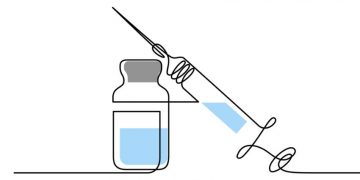Whether you are a landlord or renter, you have a legal responsibility to keep your property in a safe and decent condition. There are several causes of disrepair in housing. To calculate the disrepair damages use the housing disrepair calculator. Now discusses your legal responsibilities to maintain your property.
Public housing
Across the country, a number of public housing projects are in severe disrepair, making it difficult for many people to afford to live in them. New York City’s largest public housing operator, the New York City Housing Authority, or NYCHA, has a huge repair backlog. It needs more than $31.8 billion to repair its properties, but the Trump administration has agreed to appoint a monitor to oversee the authority.
NYCHA’s repair backlog is the result of decades of disinvestment. This disinvestment was fueled by resentment towards low-income communities of colour. Decades of neglect have eroded NYCHA’s properties and made it harder for residents to access clean water, heating systems, and air quality.
NYCHA’s maintenance problems are especially widespread in low-income apartments, where more than a third of units have three or more maintenance issues. In addition to water leaks and mould, residents are also facing plumbing problems and pest infestations. They have to live with broken elevators, heating system failures and peeling lead paint.
A recent report from NYCHA shows the extent of disrepair in the city’s public housing. The report identifies the effects of the crisis on all New Yorkers and identifies practical solutions to fix the problems.
The report found that a staggering 75 percent of NYCHA’s common areas were in severe disrepair. It also showed that over one-third of units were contaminated with lead paint. This exposure to lead has been linked to increased rates of respiratory health problems.
Common causes of disrepair in housing
Whether you’re a tenant or a landlord, disrepair can have a significant impact on the health and safety of your property. If you suspect your property is in disrepair, you may be entitled to compensation.
There are several common causes of housing disrepair, such as leaky roofs, leaking windows, broken boilers, faulty wiring, broken plumbing, broken drains, mould and other health problems. your property is in disrepair, contact your landlord or housing association immediately. Claim, your claim will be assessed by a legal firm or a housing disrepair solicitor.
If your property is in disrepair, and the landlord or housing association doesn’t fix the problem, you may be entitle to compensation. These claims can cover illness, time off work, damage to personal property, and physical injury.
Disrepair can be caused by a number of different issues, including leaky pipes, pest infestations, rotting fences and drains, or missing essential amenities. There are several ways to make a claim, including contacting your landlord, writing a letter, sending certified mail, or getting an independent expert assessment.
The most common cause of disrepair in housing is damp. This can lead to respiratory problems, allergies, and asthma. When a property is damp, it can affect the immune system of vulnerable people. Mould can also cause health problems, as it can eat away at your immune system.
New York landlords’ obligations to maintain housing in a safe and decent condition
Whether you are a renter or a landlord, you have a legal responsibility to maintain your property in good condition. In addition to basic safety and security measures, landlords also have the duty to provide heat during colder months, running water, electricity, and a decent place to live.
The state of New York has a number of laws that outline the landlord’s responsibility. These laws range from general ground rules to specific laws governing certain properties.
The Housing Stability & Tenant Protection Act of 2019 added an additional duty to landlords to improve their housing conditions. It requires landlords to provide an operational smoke detector. This detector must be in operation at the time of the tenant’s move-in.
It’s also a good idea to ask your landlord when he can make repairs. If he can’t, you can try to pressure the local Board of Health to perform an inspection.
You can also file a complaint with the Division of Housing and Community Renewal, which enforces the New York State rent laws. The HPD (Housing Preservation Department) also has a brochure to help tenants and landlords navigate housing laws.
The local Board of Health can also file a criminal case against a landlord who fails to comply with the state Sanitary Code. Fines can range from $10 to $500 per day.
























